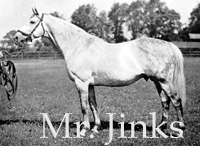16 August 1927: The Alderman Jinks Affair. Mr Denis Johnstone, the leader of the Labour Party, proposed a motion of No Confidence in the Government of Mr W.T. Cosgrave. Johnstone opened the crucial debate with the following words:
The motion down in my name and which I move is:
“That the Executive Council has ceased to retain the support of the majority in Dáil Eireann.”
“That the Executive Council has ceased to retain the support of the majority in Dáil Eireann.”
In effect, it is clear that that motion is intended to test the views of the House as to whether the present Executive Council shall continue in office. It is based on Article 53 of the Constitution, which says: “The President and Ministers nominated by him shall retire from office when they cease to retain the support of the majority in Dáil Éireann.”
The result was a tie of 71 votes each. As a result the vote of the Speaker Mr Michael Hayes decided the issue for the Government. The absence of Mr Jinks of the National League Party (who were in alliance with Fianna Fail) was crucial to Cosgrave’s survival.
It is widely believed that Jinks non-appearance was due to the intervention of Major Bryan Cooper and J.M. Smyllie (editor of the Irish Times) who plied Jinks with liberal quantities of drink in the hours before the vote was taken. Their hospitality apparently rendered their hapless guest in no fit state to attend the House. The pair convinced their drinking companion that a ticket home was a better course of action than attendance upon the House when he was obviously the worse for wear. They then put him on the Sligo train and thus unable to partake in the day’s parliamentary proceedings.This development thus saved Mr Cosgrave’s Government from almost certain defeat.
Jink’s, a National League Deputy, was the centre of wild speculation that he had been kidnapped to keep him from voting. Rumours swept the country and headlines such as, ‘The Mystery of Deputy Jinks, the missing deputy’ screamed from several newspapers not only in the U.K. and America.
The sensational affair began when Jinks walked out of the Dáil chambers before the vote was about to be called and he couldn’t be found despite a frantic search by colleagues.
There was consternation amongst the opposition who had been confident that the Government would fall. Jinks was later tracked to a hotel at Harcourt Street having spent the day strolling through the streets of Dublin. He told reporters he had gone to Dublin with instruction from two thirds of his supporters to vote for the Government.
“I was neither kidnapped nor spirited away. I simply walked out of the Dáil when I formed my own opinion after listening to a good many speeches.
“I cannot understand the sensation nor can I understand the meaning or object of the many reports circulated. What I did was done after careful consideration of the entire situation.
“I have nothing to regret for my action. I am glad I was the single individual who saved the situation for the Government, and perhaps, incidentally, for the country. I believe I acted for its good,” said Deputy Jinks.
“I cannot understand the sensation nor can I understand the meaning or object of the many reports circulated. What I did was done after careful consideration of the entire situation.
“I have nothing to regret for my action. I am glad I was the single individual who saved the situation for the Government, and perhaps, incidentally, for the country. I believe I acted for its good,” said Deputy Jinks.
The Sligo deputy arrived home on Wednesday night by the midnight mail train. A large crowd greeted his arrival. He spent the following morning receiving callers including one proclaiming him “ The Ruler of Ireland.”!!!
Jinks had only been elected a TD in June of that year and subsequently lost his seat in the General Election of September that same year. He returned to local politics where he served once again as Mayor of Sligo. He died in 1934.
To this day the bizarre actions of Mr Jinks have been the subject of much speculation. The common accepted story is that he was inveigled into doing the rounds of various establishments in Dublin City centre by Smylie and Cooper, men with Sligo connections and who were from a Unionist background. They did not want to see Mr De Valera in power!
By the time the vote was called he was nowhere to be seen and his somewhat ignominious place in modern Irish political history was assured - Legend has it that Mr Cosgrave then purchased or had purchased on behalf of the Government a horse called Mr Jinks [above]. This horse went on to win the Two Thousand Guineas at Newmarket, England in 1929!

No comments:
Post a Comment